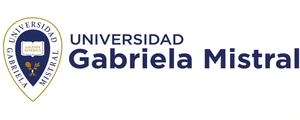Gabriela Mistral University Repository
The Gabriela Mistral University Library has developed the following Academic Repository in order to preserve, disseminate and make available the full-text contents of the academic production developed by the different actors in the academic and research field of the University.
The UGM University at the beginning of the year 2017 incorporated the UCINF University, also adding that collection where we find memories, theses, degree works, academic magazines, speeches, books, digital and sound files. Contact: [email protected]
The UGM University at the beginning of the year 2017 incorporated the UCINF University, also adding that collection where we find memories, theses, degree works, academic magazines, speeches, books, digital and sound files. Contact: [email protected]
Epistemología del coaching
| dc.contributor.author | Gamboa Muñoz, Oscar Ricardo | |
| dc.date.accessioned | 2018-08-13T19:01:23Z | |
| dc.date.available | 2018-08-13T19:01:23Z | |
| dc.date.issued | 2010 | |
| dc.identifier.citation | Akadèmeia V.8 N°2 diciembre 2010 pp: 63 - 80 | es_ES |
| dc.identifier.issn | 07189397 | |
| dc.identifier.uri | https://hdl.handle.net/20.500.12743/1310 | |
| dc.description.abstract | El presente artículo constituye un intento por analizar, desde un punto de vista epistemológico, tres modelos de coaching: el cognitivo-conductual, el ontológico y el cognitivo-estratégico. El problema planteado, inicialmente, consiste en identificar cuáles son las epistemologías a la base de cada uno de estos enfoques, además de examinar cuál es la relación coach-coachee que cada enfoque sugería. Para ello, se analizaron fragmentos de los textos fundamentales de esos modelos, mediante una metodología combinada de análisis de contenido y análisis de discurso, en relación a conceptos surgidos desde la Filosofía de la Ciencia. El coaching hoy en día es un verdadero fenómeno, habiéndose incorporado en organizaciones nacionales y siendo adoptado como técnica en diversos campos, no obstante lo anterior, su práctica sigue centrada predominantemente en el ámbito ejecutivo-empresarial. Precisamente, si queremos extender el uso de este método hacia un ámbito más social, resulta relevante profundizar en el análisis crítico, tarea que queremos comenzar con este estudio exploratorio. | es_ES |
| dc.description.abstract | This article attempts to analyze, from an epistemological point of view, three models of coaching: cognitive-behavioral, ontological and cognitive-strategic model. The problem, initially, is to identify the epistemologies and the coach-coachee relationship based on each of these three approaches. Fragments of the basic texts underlying these models were analysed, using a combined methodology of content and discourse analysis, in relation to concepts that emerged from the Philosophy of Science. Coaching today is a real phenomenon since it has been incorporated in national organizations and adopted as a technique in several fields. However, its practice is seen mainly at the executive-managerial level. lndeed, if we want to expand the use of this method to a more social environment, it is important to deepen the critical analysis. This is the task we have undertaken with this exploratory research. | |
| dc.language.iso | es | es_ES |
| dc.publisher | Universidad de Ciencias de la Informática | es_ES |
| dc.rights | Attribution-NoDerivs 3.0 United States | |
| dc.rights.uri | http://creativecommons.org/licenses/by-nd/3.0/us/ | |
| dc.subject | Coaching | es_ES |
| dc.subject | Teoría del conocimiento | es_ES |
| dc.title | Epistemología del coaching | es_ES |
| dc.title.alternative | Análisis epistemológico de tres modelos | es_ES |
| dc.title.alternative | Epistemology of coaching | |
| dc.type | Article | es_ES |



